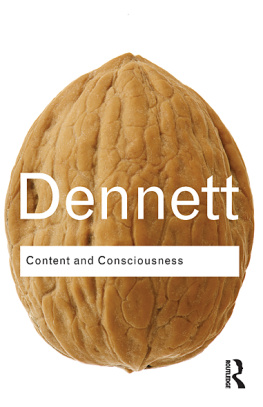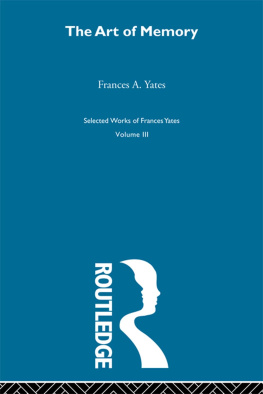JAPANESE MODELS OF CONFLICT RESOLUTION
Japanese Studies
General Editor: Yoshio Sugimoto
Images of Japanese Society: Ross E. Mouer and
Yoshio Sugimoto
An Intellectual History of Wartime Japan:
Shunsuke Tsurumi
A Cultural History of Postwar Japan:
Shunsuke Tsurumi
Beyond Computopia: Tessa Morris-Suzuki
Constructs for Understanding Japan:
Yoshio Sugimoto and Ross E. Mouer
Japanese Models of Conflict Resolution:
S. N. Eisenstadt and Eyal Ben-Ari
Forthcoming
Enterprise Unionism in Japan: Hirosuke Kawanishi
Group Psychology of the Japanese in Wartime:
Toshio Iritani
Changing Japanese Suburbia: Eyal Ben-Ari
Technology and Society in Postwar Japan:
Shigeru Nakayama
Transferred Development: Western Technology
and the Industrialisation of Japan: Ian Inkster
JAPANESE MODELS OF CONFLICT RESOLUTION
Edited by
S. N. Eisenstadt and Eyal Ben-Ari
First published in 1990 by
Kegan Paul International
This edition first published in 2010 by
Routledge
2 Park Square, Milton Park, Abingdon, Oxon, OX14 4RN
Simultaneously published in the USA and Canada
by Routledge
711 Third Avenue, New York, NY 10017
Routledge is an imprint of the Taylor & Francis Group, an informa business
Kegan Paul International 1990
All rights reserved. No part of this book may be reprinted or reproduced or utilised in any form or by any electronic, mechanical, or other means, now known or hereafter invented, including photocopying and recording, or in any information storage or retrieval system, without permission in writing from the publishers.
British Library Cataloguing in Publication Data
A catalogue record for this book is available from the British Library
ISBN 10: 0-7103-0342-4 (hbk)
ISBN 13: 978-0-7103-0342-4 (hbk)
Publishers Note
The publisher has gone to great lengths to ensure the quality of this reprint but points out that some imperfections in the original copies may be apparent. The publisher has made every effort to contact original copyright holders and would welcome correspondence from those they have been unable to trace.
Contents
Acknowledgements
This volume and most of the essays presented within it originated in an international seminar on Japanese Models of Conflict Resolution, held at the beginning of 1987. This seminar, which formed part of an ongoing programme on comparative civilizations at the Harry S. Truman Institute for the Advancement of Peace, also benefitted from the sponsorship of the Department of Sociology and Social Anthropology and the Department of East Asian Studies at the Hebrew University. We would like to take this opportunity to thank the staff of the Truman Institute for their help, and especially the Institutes chairman, Professor Ben-Ami Shillony, for his constant encouragement and support.
S. N. Eisenstadt and Eyal Ben-Ari (Editors)
The Contributors
MICHAEL ASHKENAZI
Michael Ashkenazi is a lecturer at the Department of Behavioral Sciences at Ben-Gurion University of the Negev, Israel. He has published several papers on Japanese religion, Japanese management practices, and Ethiopian immigrants to Israel. He has recently co-edited Ethiopian Jews and Israel (Transaction Books, 1987) and is currently co-writing a book (with Professor Alex Weingrod) which summarizes five years of work on the Ethiopian immigrant community in Israel.
HARUMI BEFU
Harumi Befu is a professor at the Department of Anthropology at Stanford University. He has published extensively on various aspects of Japanese society and culture. Some of his recent publications have appeared as articles in Social Analysis, Rice University Studies and Senri Ethnological Studies and as chapters in Nihonjin no Zoto (edited by M. Ito and Y. Kurita, Minerva, 1984) and The Challenge of Japans Internationalization (edited by H. Mannari and H. Befu, Kodansha, 1983).
EYAL BEN-ARI
Eyal Ben-Ari is a lecturer at the Department of Sociology and Social Anthropology and a research fellow at the Harry S. Truman Institute at the Hebrew University of Jerusalem. He has written a number of articles about urban communities in Japan (published in Administration and Society, Cambridge Anthropology and International Journal of Sociology of the Family), and co-edited (with Brian Moeran and James Valentine) Unwrapping Japan (Manchester University Press).
SHMUEL N. EISENSTADT
Shmuel N. Eisenstadt is Rose Isaacs Professor of Sociology at the Department of Sociology and Social Anthropology at the Hebrew University of Jerusalem. Among the many books he has written are Israeli Society (Basic Books, 1967), From Generation to Generation (The Free Press, 1971), Revolutions and the Transformation of Societies (The Free Press, 1978) and (with A. Shahar) Society, Culture and Urbanization (Sage, 1987). Among the books he has recently edited are Patterns of Modernity (Francis Pinter, 1987), (with M. Abitbol and N. Chazan) The Early State in African Perspective (Brill, 1988) and (with I. Silber) Knowledge and Society (JAI Press, 1988).
EHUD HARARI
Ehud Harari is Associate Professor at the Departments of Political Science and East Asian Studies at the Hebrew University of Jerusalem and chairman of the Department of East Asian Studies. He has written The Politics of Labor Legislation in Japan (University of California Press, 1973) and Policy Concertation in Japan (Verlag Ute Schiller, 1986), as well as numerous chapters and articles on advisory bodies in the Japanese policy processes, industrial relations and labour policy and politics in Japan, and organizational problems in multinational corporations.
CHALMERS JOHNSON
Chalmers Johnson is Rohr Professor of Pacific International Relations in The Graduate School of International Relations and Pacific Studies at the San Diego campus of the University of California. He is the former Walter and Elise Haas Professor of Asian Studies at the University of California, Berkeley, and former chairman of Berkeleys Center for Chinese Studies and its Department of Political Science. He has written extensively on the subjects of East Asian political economy, revolution and social movements, including such books as Peasant Nationalism and Communist Power, An Instance of Treason, Revolutionary Change, Conspiracy at Matsukawa, Autopsy of Peoples War, Japans Public Policy Companies, and MITI and the Japanese Miracle. He is a fellow of the American Academy of Arts and Sciences and a member of the Council on Foreign Relations.
MICHAEL SHALEV
Michael Shalev is a senior lecturer in the Departments of Political Science and Sociology and Social Anthropology at the Hebrew University of Jerusalem. He has published a number of articles dealing with the comparative analysis of labour movements and their consequences for public policy in the Western nations. A collection of essays by Shalev entitled







